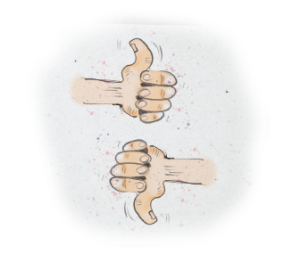Over-prescription, a widespread issue in the healthcare industry, refers to the excessive use of medications by healthcare providers. This practice not only leads to unnecessary costs but also poses serious risks to patients’ health. In recent years, the problem of over-prescription has garnered increased attention due to its detrimental effects on individuals and the healthcare system as a whole. I would like to delve briefly into the reasons behind over-prescription, its consequences, and potential solutions to address this pressing issue.
Several factors contribute to the problem of over-prescription. One of the main reasons is the influence of pharmaceutical companies on healthcare providers. Through marketing tactics and financial incentives, drug companies often encourage physicians to prescribe their medications, even when they may not be the most suitable option for patients. Additionally, time constraints and heavy workloads can lead healthcare professionals to rely on medications as a quick fix, rather than exploring alternative treatment options. Moreover, patient demand for quick symptom relief and the fear of malpractice lawsuits can also drive over-prescription practices.
The consequences of over-prescription can be far-reaching and harmful to patients’ health. One major concern is the risk of adverse drug reactions and interactions, which can lead to serious complications and even death. Over-prescription also contributes to the development of antibiotic resistance, making it harder to treat common infections. Furthermore, unnecessary medications can result in financial burden for both patients and the healthcare system, as well as contribute to environmental pollution through the disposal of unused drugs.
The problem of over-prescription not only affects individual patients but also strains the healthcare system as a whole. Excessive use of medications leads to higher healthcare costs, as resources are allocated towards unnecessary prescriptions rather than essential services. Moreover, over-prescription contributes to the burden on pharmacies and healthcare facilities, leading to increased waiting times and reduced quality of care for patients. Addressing this issue is crucial for improving the efficiency and sustainability of the healthcare system.
To combat over-prescription, a multi-faceted approach is needed that involves healthcare providers, patients, and policymakers. Healthcare professionals should prioritise evidence-based medicine and engage in shared decision-making with patients to ensure that medications are prescribed judiciously. Continuing education and training programs can also help providers stay informed about the latest guidelines and best practices in prescribing medications. Patients, on the other hand, can play a role by advocating for themselves and asking questions about the necessity of prescribed medications.
Policymakers can implement regulations and policies aimed at curbing over-prescription practices, such as limiting the influence of pharmaceutical companies on healthcare providers and promoting alternative therapies. Electronic prescribing systems and prescription monitoring programs can also help track and prevent excessive prescribing patterns. By working together, stakeholders can make strides towards reducing over-prescription and improving the quality of care delivered to patients.
Over-prescription is a significant problem in healthcare that requires urgent attention and action. By understanding the root causes of this issue, acknowledging its consequences, and implementing effective solutions, we can work towards a healthcare system that prioritises patient well-being and responsible medication use. Like so many things in life prescribing medication is a matter of balance. And it is never more nuanced and complicated than in the context of mental illness. The great leaps forward that have been made in recent decades through the development of new psychotropic drugs for the treatment and amelioration of disorders like depression have indeed been leaps forward, not backwards or sideways. The modern clinician has an incredible array of new pharmaceuticals at their disposal. However with this power comes the responsibility on the part of the clinician to stay informed and to exercise a measure of restraint. Through collaboration and the commitment to best practices, we can mitigate the harms of over-prescription and promote a culture of safe and effective healthcare delivery.
And finally the elephant in the room; namely a paucity of time among overburdened practitioners. When it comes to mental health government systems across the world are severely overburdened. There are proven therapies that can reduce or, over time, even replace the need for prescription drugs. But they are without exception time intensive and for overstretched clinicians time is in critically short supply. As individuals we need to take control of our health and do everything we can to avoid mental illness. Against this backdrop self-help systems like Metaphorical Therapy are becoming ever more important. You can read more about how Metaphorical Therapy can help both individuals and organisations here.
















